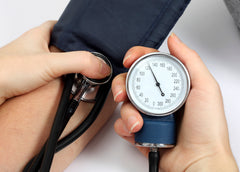Menu
 America's Largest Selection - Same Day Shipping if Ordered by Noon EST*
America's Largest Selection - Same Day Shipping if Ordered by Noon EST*
 America's Largest Selection - Same Day Shipping if Ordered by Noon EST*
America's Largest Selection - Same Day Shipping if Ordered by Noon EST*
 Visit CA shop
Visit CA shop
 Many people who suffer a stroke will experience either urinary or bowel incontinence, or both, shortly after the stroke’s occurrence. Incontinence is a loss of an individual’s ability to control their bladder and/or bowels. Generally, urinary incontinence is more common after a stroke than bowel incontinence.
Many people who suffer a stroke will experience either urinary or bowel incontinence, or both, shortly after the stroke’s occurrence. Incontinence is a loss of an individual’s ability to control their bladder and/or bowels. Generally, urinary incontinence is more common after a stroke than bowel incontinence.
Continence control can be a problem for individuals who have suffered a stroke as the partial or total loss of consciousness can result in urination or bowel movements without the realization that they are occurring. Strokes may also damage the parts of the brain that control bladder and/or bowel functions. This can result in persistent incontinence (small volumes of urine that is leaked sporadically through the night or day). Incontinence may also result from the following due to a stroke:
If the stroke has affected the individual’s mobility, they can potentially suffer from functional incontinence (an inability to physically get to the bathroom in time). Individuals may find that the frequency and urgency of urination is much more frequent. Enuresis or nocturnal incontinence may happen at night, resulting in wet sheets in the morning. Some medication can also cause problems with bowel or bladder control Depending on the severity of the stroke and the age of the individual, this loss of control may be temporary or permanent.
Incontinence can be managed effectively through rehabilitation under the guidance of professional health care practitioners, and through the use of aids such as absorbent incontinence products like:
Adult Diapers, Underwear, Pads and Male Guards
Questions?
Toll Free: 1-877-775-1556 (Mon to Fri, 9am to 5pm EST)
Email: help@healthwick.com
Sign-up for our Free Automatic Delivery Program and save 5% on all automatic orders going forward. Click here to learn more.
© 2025, Healthwick USA Powered by Shopify

